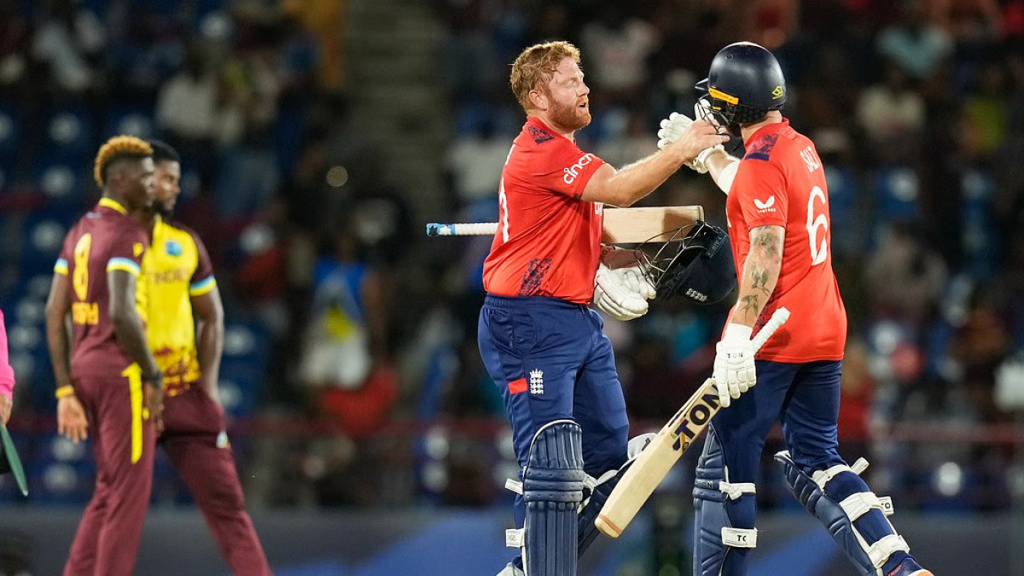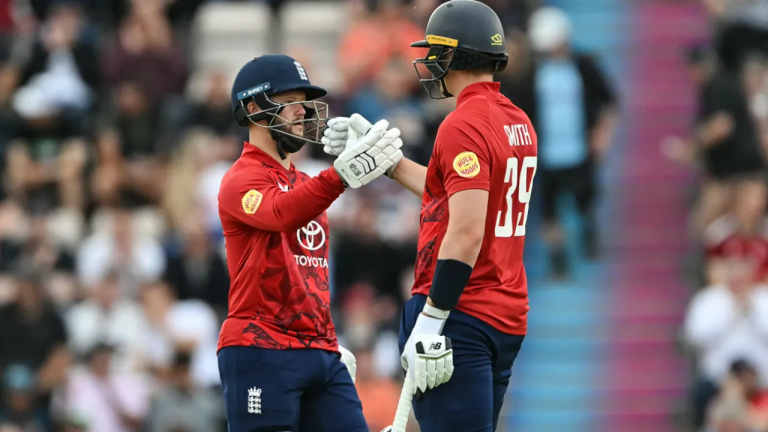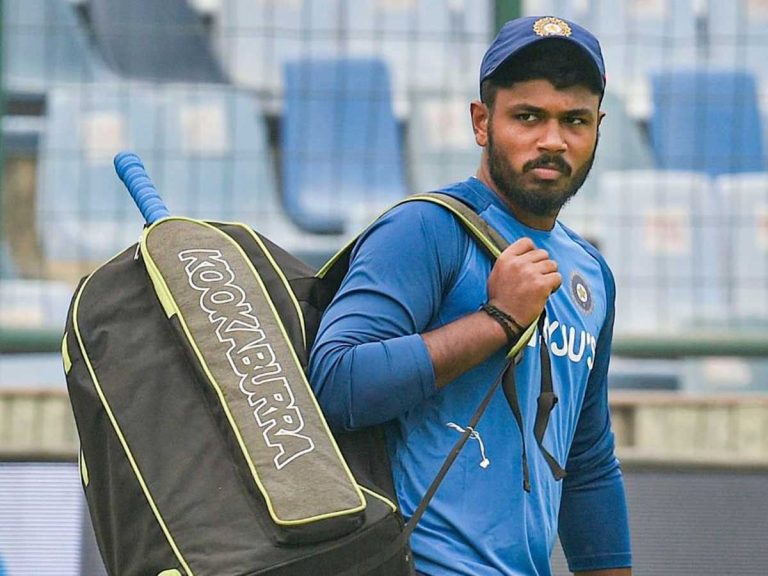
Series Overview
England completed a comprehensive 3-0 T20I series sweep against the West Indies in June 2025, marking Harry Brook’s second consecutive whitewash as captain within just 11 days. The series, which concluded on June 10, showcased England’s depth and adaptability across formats while highlighting persistent concerns for the West Indies in white-ball cricket.
The Captain’s Touch
Brook has now won five matches in a row against the West Indies since taking over from Jos Buttler, establishing himself as a captain who leads by example. His seamless transition from Jos Buttler’s leadership has been marked by tactical acumen and the ability to get the best out of his squad. Brook praised his team as a “group of mates” after sealing the series, reflecting the unified approach that has characterized England’s recent performances.
The Yorkshire batsman’s captaincy style appears to blend aggressive intent with calculated risk-taking, traits that have served England well in both the ODI and T20I formats during this tour.
Match-by-Match Breakdown
First T20I – Chester-le-Street (June 6)
The West Indies paid the price for slow starts with both ball and bat, falling 21 runs short in their chase. Jos Buttler’s commanding 96 and Liam Dawson’s four-wicket haul set the tone for England’s dominance. The match highlighted England’s ability to post competitive totals and defend them effectively.
Second T20I – Bristol (June 8)
England successfully chased down 197 with four wickets and nine balls to spare in Bristol. Despite the West Indies posting a formidable total laden with sixes, England’s batting depth proved decisive. Jos Buttler contributed 47 and Brook added 34 as England reached 112-2 in 12.2 overs before both fell in consecutive overs with 85 still needed. The successful chase demonstrated England’s fearless approach and batting resilience under pressure.
Third T20I – Final Victory (June 10)
Ben Duckett earned Player of the Match honors as England completed their second 3-0 series sweep. The comprehensive nature of the victory underscored England’s superior execution across all departments.
Tactical Insights
England’s success in this series can be attributed to several key factors:
Batting Depth: The team’s ability to chase down challenging totals and recover from early setbacks demonstrated remarkable depth. Multiple players stepped up across different matches, reducing dependency on individual performances.
Bowling Variations: England’s bowling attack showed versatility in different conditions, with Liam Dawson’s spin proving particularly effective in the opening match.
Adaptability: The team’s capacity to adjust their approach based on match situations – whether setting or chasing targets – highlighted their tactical maturity.
West Indies’ Struggles Continue
The comprehensive defeat raises serious questions about the West Indies’ white-ball cricket trajectory. Coming off a 3-0 ODI series defeat earlier in the month, the T20I whitewash represents a continuation of their struggles against quality opposition.
Key concerns for the Caribbean side include:
Consistency Issues: The inability to maintain performance levels throughout matches, particularly evident in their bowling efforts and batting collapses.
Execution Under Pressure: Despite posting competitive totals, the West Indies couldn’t capitalize on advantageous positions, suggesting mental fragility in crucial moments.
Structural Problems: The back-to-back series defeats indicate deeper systemic issues that require addressing beyond individual performances.
Historical Context
This series followed England’s momentum after sweeping the West Indies 3-0 in the preceding ODI series, making it a complete tour domination. The comprehensive nature of England’s victories across formats suggests a significant gap in current playing standards between the two sides.
Looking Forward
For England, Brook’s successful captaincy debut provides a solid foundation for future white-ball campaigns. The team’s ability to perform consistently across formats bodes well for upcoming international commitments.
The West Indies, meanwhile, face a period of introspection. The consecutive whitewashes expose the urgent need for strategic restructuring and player development to remain competitive at the highest level.
Conclusion
England’s 3-0 T20I series victory represents more than just another bilateral success. It marks the emergence of Harry Brook as a captain capable of maintaining England’s white-ball excellence while highlighting the West Indies’ need for fundamental changes in their approach to limited-overs cricket. The series will be remembered as a statement of intent from England and a wake-up call for Caribbean cricket.






